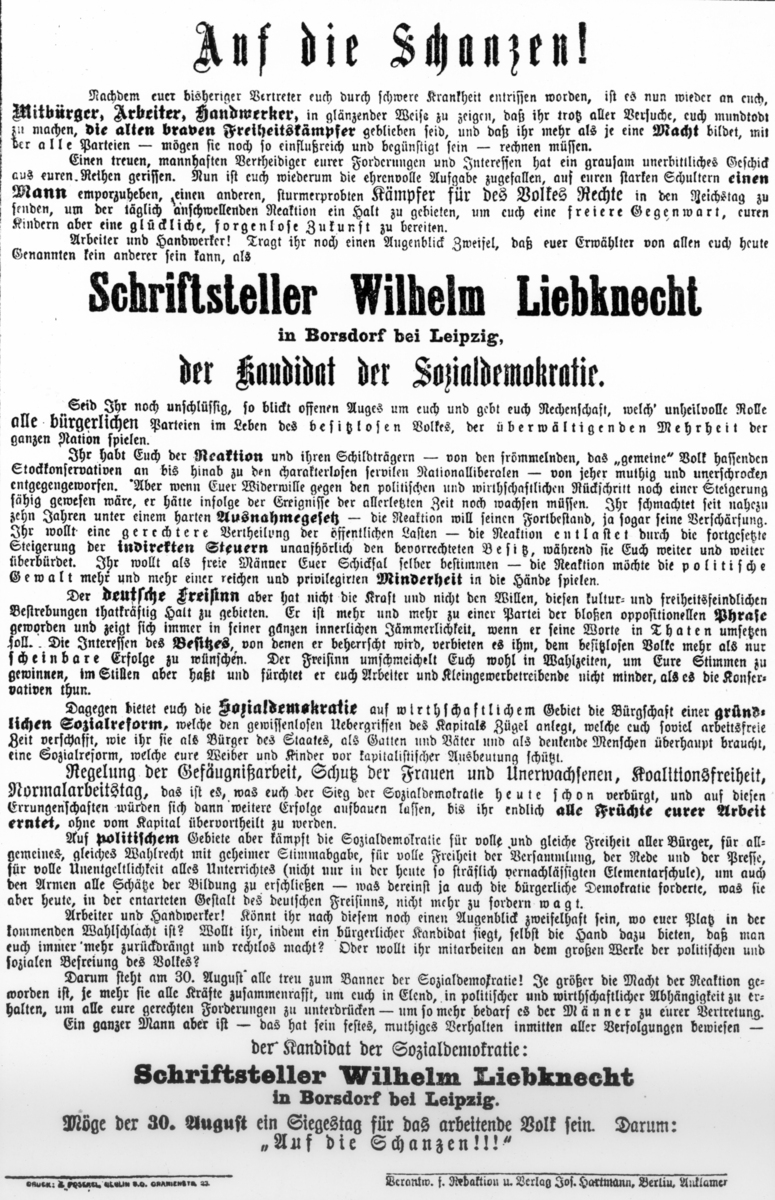Abstract
This election appeal calls for supporters of the Social Democratic
leader Wilhelm Liebknecht (1826–1900) to go “To the ramparts!” At the
time, Liebknecht was the SPD’s candidate in a Reichstag by-election,
held in Berlin on August 30, 1888. His place of residence was given as
Borsdorf, a village outside Leipzig, because he had been banished from
Leipzig in 1881 under the “minor state of siege” provision in the
Anti-Socialist Law. Liebknecht had previously represented a Reichstag
constituency in Saxony (1867–1871 and 1874–1881) and another in
Hesse-Nassau (1881–1887). During the legislative session of 1887–1890,
Bismarck’s “cartel” of right-wing parties held a slim majority in the
Reichstag. As this appeal illustrates, Liebknecht targeted many enemies
and government policies in his effort for re-election, including the
Conservative and left-liberal parties, the exceptional laws directed
against Social Democracy, the taxation of consumer goods, and unfair
suffrages at the state and municipal level. Positive points included
protection for working women and youths, the demand for freedoms of
coalition, speech, and the press, free compulsory education, and a
“normal workday” (whereas the Social Democrats’ proposed Workmen’s
Protection Bill of January 1885 had called on the state to establish a
maximal ten-hour workday, the party’s Erfurt Program of 1891 demanded an
eight-hour workday). After winning the Berlin seat in August 1888,
Liebknecht represented the constituency until his death on August 7,
1900. (He also sat for the SPD in the Saxon House of Deputies from
1879–1885 and 1889–1892.) Liebknecht’s campaign in the summer of 1888
was fought under difficult circumstances. Whereas the Anti-Socialist Law
had been applied in a “mild” way—the so-called
milder Praxis—in the mid-1880s, after
1887 the persecution of socialists was actually ratcheted up until the
Anti-Socialist Law finally expired on September 30, 1890.
